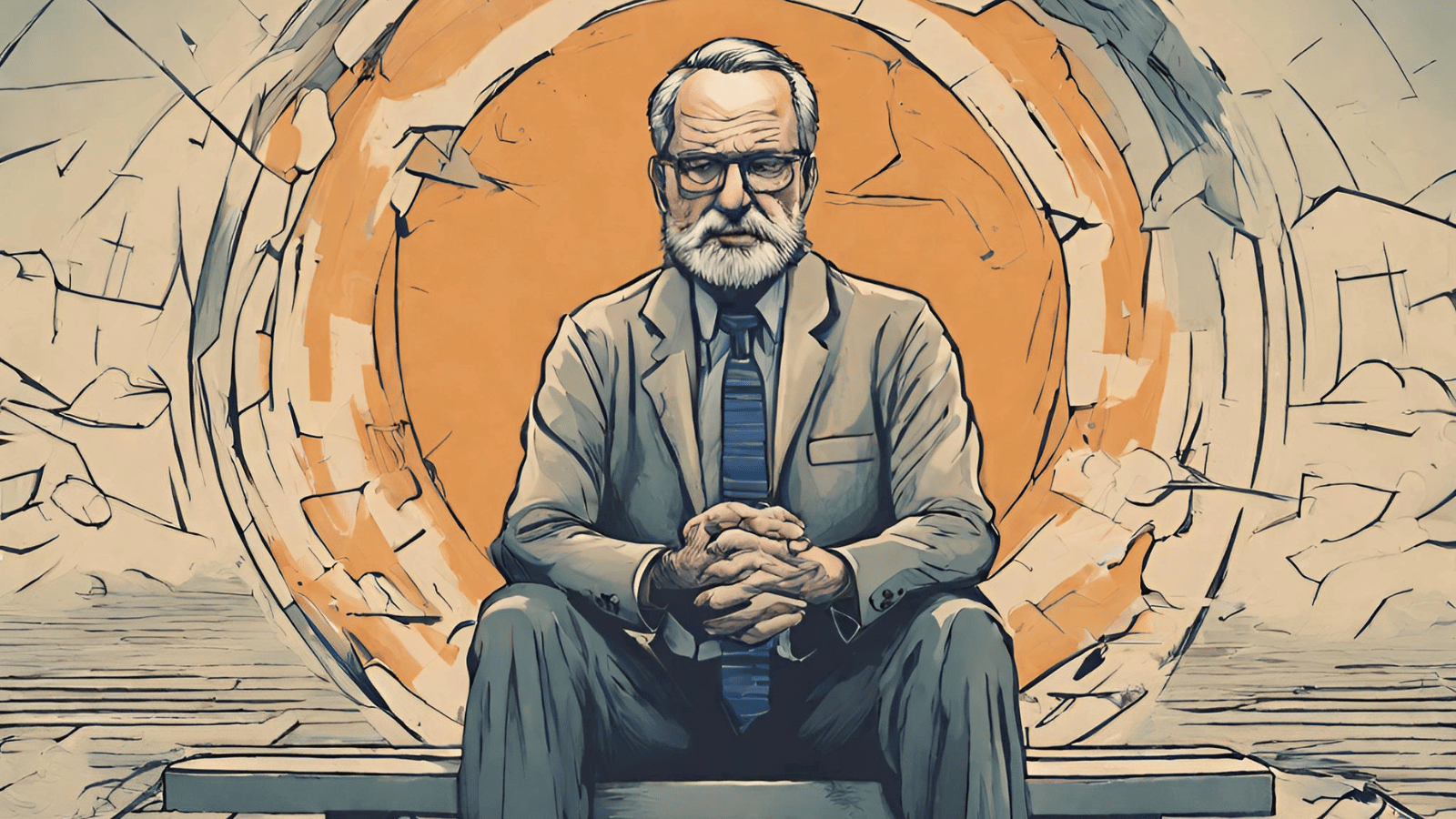In the professional arena, a hidden and complex phenomenon impacts senior-level professionals more profoundly than often recognized: the mid-life crisis. Contrary to popular belief and simplistic stereotypes, this crisis represents a serious and multifaceted issue in affluent societies.
The comprehensive report by Osea Giuntella and colleagues from the National Bureau of Economic Research (Working Paper 30442, 2022) sheds light on the paradoxical nature of the mid-life crisis, particularly among high-achieving individuals.
This article aims to delve into the report’s findings, exploring the implications of this phenomenon on both personal and professional levels, and how it contradicts the popular narrative of mid-life being a time of peak stability and happiness, especially for those seemingly at the pinnacle of their careers.
The Reality of Mid-life Crisis
The report by Giuntella et al. (2022) presents a longitudinal crisis of midlife, particularly in rich nations, providing a new perspective on the subject. It finds that middle-aged individuals, despite being near their peak earnings and generally in good health, are experiencing significant levels of distress. This distress manifests in severe forms such as suicide, clinical depression, and alcohol dependence, challenging the common expectation of mid-life as a period of comfort and satisfaction.
This crisis is not confined to a small segment of the population but is seen across various demographics, revealing a broader societal issue. The report’s comprehensive analysis, encompassing approximately 500,000 individuals, highlights that mid-life is not the cushioned, enjoyable period that one might expect in the most prosperous era of human history. Instead, it paints a picture of deep-rooted issues emerging in the lives of many middle-aged citizens, often overshadowed by external markers of success and stability.
These findings are particularly striking given the context in which they occur – within the most affluent and medically advanced societies in human history. It raises critical questions about the effectiveness of societal and economic progress in ensuring emotional and mental well-being, especially during what is traditionally seen as the prime of life.
Mid-life Crisis in High-Earning Professionals
For senior professionals, the findings of the report present a striking paradox. These individuals, residing in the safest countries and at their peak life-time earnings, are paradoxically experiencing a profound internal crisis. The report’s data show patterns of extreme distress in mid-life that are consistent with the earlier, little-known predictions of Elliott Jaques (1965). These findings challenge the commonly held belief that mid-life is a time of unparalleled life satisfaction and stability.
The mid-life crisis manifests in various ways, from feelings of unfulfilled potential and existential dread to more severe symptoms like depression and substance abuse. This contradiction between external success and internal struggle reflects a deeper issue in our understanding of professional fulfillment and mental health. The report suggests that something fundamental is amiss during this life stage, raising questions about the effectiveness of societal and economic progress in ensuring emotional and mental well-being for these high-achieving individuals.
The impact of mid-life crisis extends beyond the individual, affecting family dynamics, workplace productivity, and overall societal health. It underscores the need for a more holistic approach to understanding and addressing the needs and challenges of this demographic, particularly in affluent societies where such issues are often overlooked or misunderstood.
Corporate Responsibility and Response
The insights from the report underscore the necessity for corporations to rethink their approach to employee well-being, particularly for mid-career professionals. Traditional corporate wellness programs, focused primarily on physical health and basic mental wellness, may fall short in addressing the unique challenges of the mid-life crisis. This crisis is not a mere psychological concept but a real, impactful phenomenon in the workforce.
Companies need to develop specific strategies that cater to the emotional and existential needs of their mid-life employees. This could include offering specialized mental health services, flexible work arrangements, and programs specifically designed to address the unique challenges of this demographic. It’s about creating a work environment that recognizes and supports the complex and often hidden struggles of mid-life professionals, ensuring their well-being and continued contribution to the organization.
Strategies for Addressing Mid-life Crisis
To effectively address the mid-life crisis, a multifaceted approach is required. Individuals experiencing this crisis may find solace in seeking personal fulfillment beyond career achievements. Activities such as pursuing new hobbies, engaging in community service, or exploring spiritual or philosophical interests can provide new dimensions of satisfaction.
On the organizational side, there is a need for more nuanced support systems. This includes establishing a culture that fosters open discussions about mental health, providing access to professional counseling, and offering career development opportunities that allow for exploration and growth beyond traditional trajectories. Companies can also consider implementing mentorship programs where mid-life professionals can share their experiences and insights with younger employees, creating a sense of purpose and community.
This proactive approach not only benefits the individuals experiencing the crisis but also contributes to a healthier, more productive workplace environment. By addressing the unique needs of mid-life professionals, organizations can foster a culture of empathy, support, and understanding, ultimately leading to better outcomes for both employees and the company as a whole.
The mid-life crisis, as thoroughly documented in the NBER report, represents a significant yet often overlooked challenge in today’s professional landscape. It underscores the need for a deeper understanding and more empathetic approach toward mental health and well-being in the workplace. Both individuals and organizations have a role to play in addressing this phenomenon, ensuring a healthier and more supportive environment for those navigating this complex life stage.
As we acknowledge and address the realities of the mid-life crisis, we pave the way for more fulfilling and productive professional journeys.










